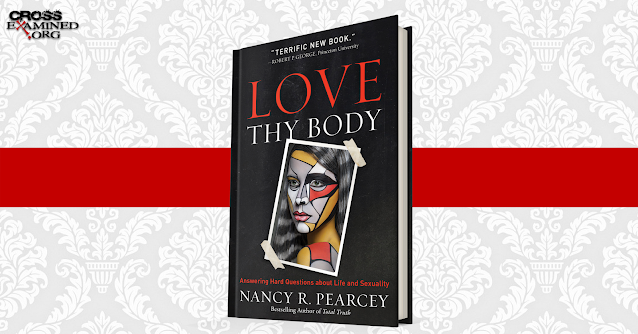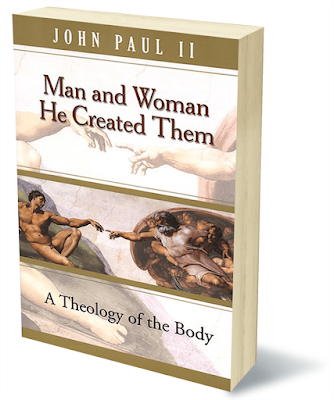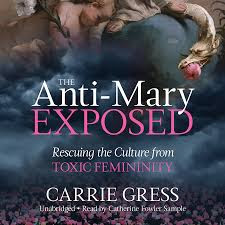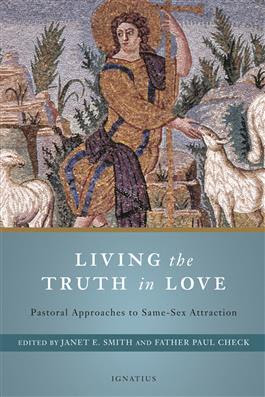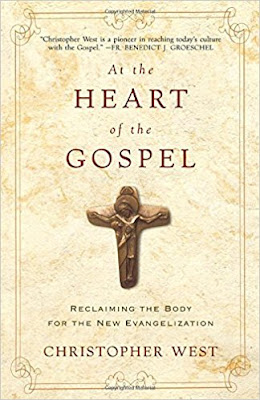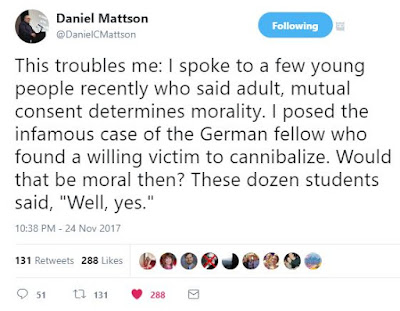THE FOLLOWING BLOG POST WAS ORIGINALLY POSTED IN 2012.
I’m often asked how I go about reviewing a film. It’s actually quite a complex, intangible, internal, interdisciplinary process--but there is a method to my madness.
Uber-movie-reviewer Pauline Kael (film critic for “The New Yorker,” 1968-1991) put it this way:
“Film criticism is exciting just because there is no formula to apply, just because you must use everything you are and everything you know.” She believed that movies are
“the most total and encompassing art form we have.”
The Founder of the Daughters of St. Paul, Blessed James Alberione, said:
"The motion picture has a psychological, one could say, a suggestive, power over the human spirit, because it takes hold of the whole person and influences all his faculties, physical and spiritual.”
In an attempt to explain my process, I’m going to use a recent interview I did:
1. How did you get into film / movie reviewing / screenwriting / producing?
I was stationed in L.A. and my superiors asked me to study communications. They don't study communications out there, they make things! So screenwriting seemed like a good fit because I'm a writer (there’s also actors in my family). UCLA is known for screenwriting (and has a separate program for screenwriting), so I went there. It also taught me how a film is constructed and how the industry works from the inside out. It was actually a heartening experience. I also went to the Christian screenwriting bootcamp called "Act One, Hollywood"
http://www.actoneprogram.com/--a month-long intensive program that also connects you to Hollywood mentors and insiders.
2. Has anything you've written been produced?
Not yet! The Father Alberione film will be coming out in early 2013, God willing, I’ve written a hockey screenplay, and a short or two. Lots of ideas in the works. The Daughters of St. Paul have also re-opened our temporarily shuttered video department in Boston.
3. How long have you been reviewing movies for the Catholic New World http://www.catholicnewworld.com/ Archdiocese of Chicago's Catholic newspaper?
About three years now. It's been a privilege, it keeps me up to date and dialoging with others about films....
4. How do you pick the films to review?
Between myself and the editor, Joyce Duriga, we try to choose something that's going to be very popular that a lot of people will see, try to highlight a great film, or give guidance on a film that is controversial or has serious negative overtones of whatever kind....
5. What is your criteria for reviewing films?
FIRST of all: excellence in filmmaking. [This would be a whole interview in itself!] Every media, every art form has its own "language," so I ask: Is this film following the rules of filmmaking and utilizing the language properly and well? What are the aesthetic values and ethics?
SECONDLY, the overall experience of the film. Is it coming from a good place? Is it telling the truth (even if illuminating the truth by contrast)? Is good presented as good and evil as evil? (Isaiah 5:20). And even if evil is presented as evil, is it GRATUITOUS with simply a nice little moral wrap-up at the end? Is the point rather that we experience and enjoy the "evil" in this film?
THIRDLY, how does it jive with a Judaeo-Christian, incarnational, sacramental worldview?
I especially like to use JP2G's
Theology of the Body as a lens because we're looking at bodies, at images of God on the screen, and very often there's a love story component. No matter what the subject matter, is human dignity upheld as THE value? I also use "God's Five F's of True Love": fundamental, free, full, faithful, fruitful.
I don't enjoy slamming films, but I will call a spade a spade. Oh, and I also sleep on it. Films can look very different the next day. AND they can EVAPORATE! If a film is still with me and haunting me a month later--in a good way--it often means it's good, rich film (or on the flipside a sick, disturbing or absurdist film that the poor little brain is trying to figure it out).
I don't try to "baptize" everything. If the film has an overall negative message or is objectionable in the main, I don't "bless" it because it had one good scene or one good point. As I review films, I try to use my review as a teachable moment, a catechetical moment. Whether or not people are actually going to see the film or not, they will learn something, receive some guidance/formation, be able to guide/form others who HAVE seen the film, etc.
What must always be kept in mind with ART is that much of the ETHICS are AESTHETICAL. It's not just that the film dealt with sex, for example, so it's automatically "bad" and no one should go see it.. HOW did they deal with it? WHAT did they show? HOW? HOW MUCH? WHAT did characters SAY? How did they ACT/REACT? What AGE might it be appropriate/inappropriate for? This makes all the difference. Especially in a hyper-sexualized culture, a film can come along that deals frankly with sex, but can straighten people's thinking out and help them have a MORE correct outlook on sex, for example. It may not be a perfect film, but it can be a bright spot amongst many, many depraved films. See these two reviews of mine:
http://hellburns.blogspot.com/2012/05/movies-what-to-expect-when-youre.html#.UCwL_allQWM
http://hellburns.blogspot.com/2012/08/movies-hope-springs.html#.UCwKlallQWM
I adhere 100% to ALL the teachings of the one, holy, Roman, Catholic, apostolic Church. I use my/the Catholic Faith to critique every film I see. I do not approve of what the Church does not approve of. Hollywood is not "Catholic," but I will cheer them on when they're on the right track AND boo them when they're not.
6. How should the average Catholic moviegoer approach a film?
Since the average moviegoer may not have had film studies, which certainly do help, and because we all have our own subjective opinions, likes and dislikes, sensibilities, etc., we should do a little homework first if possible: read some reviews, ask friends, kind of know what you're going to see ahead of time. Then take the film as a whole--don't just parse out a swear word here or there. (Was it the NYPD swearing? Well, that's realistic.) Is the whole thing coming from a good place? What's the takeaway?
Films aren't supposed to send you a "message," they're supposed to give you an experience of someone else's life. An experience of something you might not otherwise be able to access, and by going through that experience you should learn something about others, the world, yourself. You should be enriched on some level.
I really think if people knew a few basics of filmmaking however, they wouldn't get so confused, not so much about bad movies but about good movies! For example, “Juno.” A lot of parents saw this movie and still couldn’t determine whether or not it was “good,” “OK” to let pre-teens/teens see. Another example: "Tree of Life." A lot of Catholics called this movie "New Age" and it's the furthest thing from New Age. Michael Phillips (the Chicago Tribune movie reviewer) called it "the most explicitly Christian film since 'The Passion of the Christ,'" and yet so many Catholics totally missed this. Why? Because they missed the opening scene (one of the most important scenes in any film. It tells you what the whole movie is about. It sums up the whole movie.). And what was it? A quote from Job, from the Bible. A very provocative quote where God is questioning all of us through Job: "Where were you when I laid the foundations of the earth?" This means that the whole movie is going to be from a Judaeo-Christian perspective, and when you see nature scenes it's in the context of the God of the Bible's Creation. Period.
All the secular movie reviewers embraced this film. Ebert called it "a prayer." Why? They knew it was explicitly religious (religious, not “spiritual but not religious”), but it didn't offend them because it was a masterpiece of art and it didn't preach at them. It rang true. Just the way Michaelangelo and Raphael don't offend non-believers, and yet their art pulls no punches about the divinity of Christ or the truth about God's reality. And how many have been converted through great art? The director of “Tree of Life,” Terence Malick has done more for the New Evangelization with "Tree of Life" than any Church operative could dream of. It’s one of the Oscars’ mortal sins (that will go down in history) that it was nominated for several awards and didn’t win any.
7. Do you have any advice for parents regarding children and movies?
Again, do your homework as best as you can. Blessed James Alberione said about film and children that the work really is on the parents (and teachers) to: “1) choose which films 2) apportion, allot how much time the child will be allowed to spend with various media 3) accompany children to films 4) correct any false impressions they may have picked up.” This is actually good advice for any kind of media!
Parents know their own kids and what each one's sensibilities are. The most important thing is to talk about the film before (not during!) and after. "Control is for the moment, communication is for a lifetime." Two examples: "Harry Potter"--de-fang it by reading/watching with your kids and then teaching them: "Witchcraft is real, it's not make-believe. And we never use it, not even for ‘the good.’ You can't to evil that good may result." It's a teachable moment! "Super 8"--one of the kids takes the name of the Lord in vain ("God," "Jesus" and swears a lot). It's the only thing wrong with an otherwise great film. Watch with your kids and tell them: "Whenever you hear the name of God in vain, say: May He always be praised!"
We need to teach our kids media skills just like we teach them all other kinds of skills. Staying away from all films or only seeing the squeakiest-clean of films (depending on their age) doesn't teach them skills because when they eventually do happen to see these types of films they are not prepared, and teaching them these life-skills using "Harry Potter," and "Super 8" are things they will bring with them out of the theater and apply in real life. Hollywood gives us the opportunity to talk about things we need to talk about with kids! Don't make Hollywood spend their money (our yours) in vain!
We need to empower young people through Media Literacy Education combined with our Catholic Faith. We are the light of the world! We're not passive victims of the media! We are children of God and we're supposed to transform everything we come in contact with, not vice versa. St. Paul said: "You will be judging nations," and we're afraid of a movie? We don't know what to do with or say about a movie?
www.clearplay.com is an amazing, legal service that lets you watch mainstream films that have been purged of scenes of nudity, violence and language. Families with little ones (or a whole range of ages) swear by it!
8. What do you think of the MPAA rating system? (G, PG, PG-13, R, etc.)
I think it's somewhat helpful, especially now that they’re putting under the rating exactly why. However, some PG-13's these days really should be "R": "Date Night," "Dinner for Schmucks" (a truly insulting and degrading film which got a Razzie) "Easy A” (horrific and tragic), "Crazy, Stupid, Love," (incredibly tragic and irresponsible) "The Switch" and "Back-Up Plan" (Hello! Extremely mature themes throughout?) And unfortunately, movies like "Conviction" got an "R," simply because the "F" word (on the lips of prisoners) used 4 or 5 times is an automatic "R."
9. What are some of your top movies recently?
2011 was the Year of the "God" film: “Of Gods and Men,” "Soul Surfer," "Courageous," and "Tree of Life,” “The Way.”
10. What are your favorite movies of all times?
“Tree of Life,” “Man for All Seasons,” “The Mission,” “Blade Runner” (director's cut), “What About Bob”
11. How important is film and what should the Catholic Church be doing in the world of film?
About the general state of film, we might say that "the good is getting better and the bad is getting worse." Good: "Diary of a Wimpy Kid #1," "Despicable Me," "Gran Torino," "Surrogates," etc. I mentioned some of the sadder films above (also: “Back Up Plan,” “No Strings Attached,” “Friends with Benefits”). I get depressed for days after watching these films. Once you know Theology of the Body, you see the great human tragedy of what these films are portraying and how they are either calling evil good or making peace with evil (but these ways of life will never bring peace or true love.)
Film is more important than it has ever been because we are becoming a post-literate society. Everything is going visual, everything is a video, a YouTube now. People are too frazzled and have short-term attention spans to quietly read, and you can't multi-task when you read. The brain chooses what is more stimulating. So films--in their many new and easy ways of being distributed--are everywhere. We can watch them on our phones, stream them, watch on a computer, etc. Stories are now visual. Visual storytelling is where it's at. Films are the new books that unite us—the shared cultural experience carrier. Only a few films at a time are in the cinemas, and everyone eventually sees them. (Whereas other forms of media are so niche, they are no longer a shared cultural experience.) Films even unite age groups.
The Catholic Church needs to be highlighting and giving awards to good films (and it is—the Angelus Awards, Goodness Reigns, Humanitas Prize, Angel Awards, New Ethos, Dove), reviewing and discussing all films (from a cultural, artistic, informed POV, not just moralistic--there are many more levels to a film). And, most of all the Catholic Church should be supporting talented Catholic (and other) filmmakers. I personally think we should be especially supporting our young filmmakers who can reach their own generation (like Spirit Juice Studios—see:
www.BestofSpiritJuiceStudios.blogspot.com )
Filmmaking is very costly, and the Church needs to get very serious about being the patron of the arts again and giving commissions and supporting our young Leonardo da Vinci’s and Mary Cassatt’s of film.
Our Founder--a media saint--was all about the best possible presentation. Creating media in a quality way that people are used to: media that are "worthy in form of the truths which they contain." Young people especially will not give you a look/listen unless the medium of your message is top quality.
(End of “interview.”)
People often ask me how they (or I, with my vow of chastity) can keep “pure” while watching romantic movies or steamy scenes in movies.
#1. “Know Thyself.” Know what is an occasion of sin for you in particular, and avoid those kind of movies or look away at the “steamy” parts or parts that are particularly troublesome for you. Everyone has different sensibilities and thresholds. But we have to have a well-informed, well-formed, delicate (not scrupulous or lax) conscience and be very, very honest with ourselves. If we are not honest with ourselves, we are going to have a very hard time doing the right thing in any area of our life and progressing on the way of holiness.
#2. Much of visual media is voyeuristic--it’s just the nature of the beast, and depending on the intentions of the filmmakers and the cinematography, we will be either MORE or LESS put in the position of the voyeur. Even if not sexual in nature, we may be pulled in close to a very realistic portrayal of something else generally personal or private (e.g., suffering, pain, embarrassment, relationships, conversations, failure, etc.)
Again, know yourself, but also watch the movements of your mind and heart. Am I gloating over something evil? Siding with the bad guy? Getting some kind of twisted pleasure from another’s misfortune? Enjoying something lewd and crude? Lowering my personal standards and morals with each crass movie I see? Always humanize the characters on the screen in your mind and feel toward them as you should feel toward real people.
All media is virtual reality, and virtual reality is real: “real in its appearance and real in its effects.”
#3. Viewing a film is supposed to be an exercise where we put ourselves in the position of the characters (especially the main character) and vicariously go through an experience with them. However, if this experience is going to cause us to sin now or later, we need to shut down physically and emotionally for a time, look away, walk out of the theater, fast forward, shut off the device we’re watching the film on, etc. For example, as with “The Vow,” I don’t gaze into Channing Tatum’s eyes for long stints with Rachel McAdams, or ogle his ripped pecs every time he takes his shirt off (which is quite often). It kinda hasta do with
human dignity, too. Tatum is getting paid to sell emotions, to tantalize, to provoke reactions, to be looked at. He is very willing to do this. But is it fully in keeping with his human dignity for millions of female strangers to stare at his body and perhaps even lust after him? Just because he’s willing and getting paid and I ostensibly paid to see him, does that mean I get to just glue my eyes to his body? No. Repecting human dignity means affording people their dignity even when they themselves don’t care about it. And this must also be a tough call for actors when it seems appropriate to the part, or just part of the job, or they feel very comfortable in their own skin, etc.
#4. Pray. Media is spiritual, powerful, influential, ubiquitous. Pray for enlightenment, strength, wisdom, discernment and for ill effects not to harm you as you use media. Ask God to let you see only things that will help you or help you help others (even if some might be somewhat unsavory), and to know how to turn them around for your good and the good of others. Ask to be the fragrance of Christ in a media world. Pray to engage the media and other media creators/users with the Gospel. Pray for the honesty to use media in the best way possible, to not waste time, to not sin in your use of media. Go to Confession when you use media improperly: specifically to sin, to waste time, to escape from real duties or people, (and some of the uses mentioned above), etc.
But, most of all, enjoy films, encourage today’s and future filmmakers, and praise God for this incredible form of story-telling!
“Everything is ours and we are Christ’s and Christ is God’s.”
1 Corinthians 3:22
The following prayer, in reparation for evil media and in petition for the increase of good media, was written by Blessed Father James Alberione, SSP, himself a filmmaker. (Prayercards available.)





 WPATH is the little-known, top-down organization that determines "gender-affirming care" policy (i.e., "transitioning" children) everywhere.
God. Help. Us.
WPATH is the little-known, top-down organization that determines "gender-affirming care" policy (i.e., "transitioning" children) everywhere.
God. Help. Us. WPATH is the little-known, top-down organization that determines "gender-affirming care" policy (i.e., "transitioning" children) everywhere.
God. Help. Us.
WPATH is the little-known, top-down organization that determines "gender-affirming care" policy (i.e., "transitioning" children) everywhere.
God. Help. Us.









